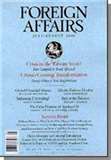The course of Christianity has been marked by pulsations of advance, retreat, and advance.
–Kenneth Scott Latourette, Volume I, Christianity in a Revolutionary Age
Christianity is a faith that is solidly grounded in history.
–Robert L. Thomas and Stanley N. Gundry, preface to The NIV Harmony of the Gospels
That history includes periods we’d like to forget but can’t because of their lingering influence. Reasons for the Crusades of the Middle Ages were as much economic as religious, a desire for new lands and wealth. We inherit fallout from the Crusades to this day in many of the conflicts in the Middle East.
Colonizations in the Americas evidenced the same split personality. Jamestown vied with Plymouth. Our country inherits this conflict, careening back and forth, stressing economics at one time and community in another.
Some Christians lived more closely to what Jesus taught than others. While Crusaders marched, religious orders treated the ill and destitute in Europe. As the industrial age dawned in the 1700’s, with its disregard for the vulnerable, Christians began schools for children of the poor. They fought against slavery and inhumane working conditions and crowded prisons.
Those who don’t know history are doomed to repeat it, so the saying goes. Sudden change burst on the world stage—terrorist attacks or revolutions in Arab nations. Others creep in more slowly—social changes due to increased numbers of women in the work force or new methods of birth control. In either case, knowledge of history gives us a better ability to develop reasoned and compassionate responses to such changes.



 We did not clap during the Good Friday concert at my church last night. It was a somber concert, about grief over the loss of loved ones, but with a tinge of hope that wove a few colors though the black tapestry. We left silently and went home.
We did not clap during the Good Friday concert at my church last night. It was a somber concert, about grief over the loss of loved ones, but with a tinge of hope that wove a few colors though the black tapestry. We left silently and went home. We will pull the black from the windows, the lights will come on, and the brass instruments and the violins and the organ will blaze the message, “He is risen!” and we will sing our alleluias for the first time in forty days.
We will pull the black from the windows, the lights will come on, and the brass instruments and the violins and the organ will blaze the message, “He is risen!” and we will sing our alleluias for the first time in forty days. Christian history fascinates: all the advances and retreats, deaths and resurrections of the church over the centuries. Such understanding allows perspective in these times of waning Christian influence in the old countries of “Christendom.”
Christian history fascinates: all the advances and retreats, deaths and resurrections of the church over the centuries. Such understanding allows perspective in these times of waning Christian influence in the old countries of “Christendom.”